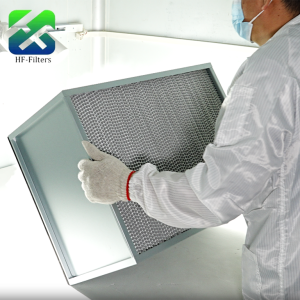HEPA filters are total workhorses for clean air—but they only pull their weight if you stay on top of their stability. Here’s the straight scoop: Cut corners on maintenance, and you’ll end up with random breakdowns that kill their particle-trapping power. If you want your HEPA filters to perform like they should, testing isn’t some extra step—it’s non-negotiable. Let’s walk through how to get this right, no fancy jargon included.
1. Test Regularly—Don’t Wait for Things to Break
Waiting until you spot a problem to fix your HEPA filter is a rookie move. By the time you notice something’s off, the filter might already be damaged. That messes with how well your equipment runs and slashes the filter’s lifespan. The smarter play? Set up a regular testing schedule to stay ahead of trouble.
Here’s how we do it on the job: First, learn how long each part of the filter usually lasts. Knowing when parts are likely to wear out lets you test before they fail. For parts with a set “wear cycle” (think gaskets or seals), put together a maintenance plan with routine checkups. This way, you nip small issues in the bud before they blow up into costly headaches.

2. Keep Detailed Records—No Half-Measures
When you’re doing big overhauls or even quick tests, write everything down. Skip this, and you’ll never know if a repair or cleaning actually worked. And if the same problem pops up later? You’ll have no history to look back on—meaning you’re just guessing, wasting time and cash.
Be specific: Jot down the date, exactly what tests you ran, what issues you found (down to small stuff like a loose seal), and how you fixed it. Vague notes like “checked filter” are worthless. The goal is to build a clear “health log” for your filter. That way, you can spot patterns—like a part that fails every 8 months—and stop problems from repeating.
Wrapping It Up
To get the most out of your HEPA filters, regular testing and detailed records go together like peanut butter and jelly. These simple steps keep the filter stable, avoid costly breakdowns, and make it last longer. Whether you’re running a cleanroom, lab, or just a big HVAC system—don’t slack on HEPA testing. Your air quality (and your wallet) will thank you.





